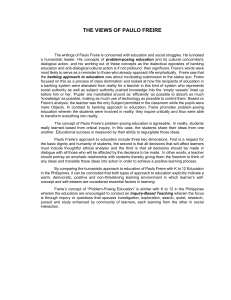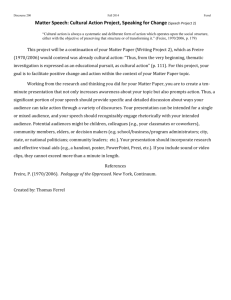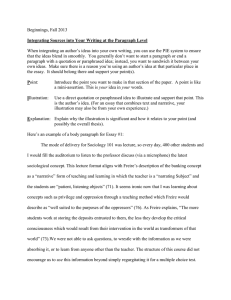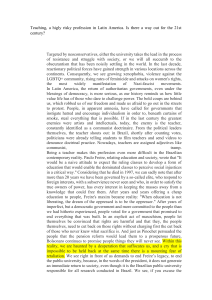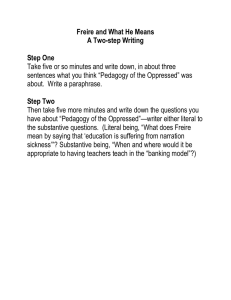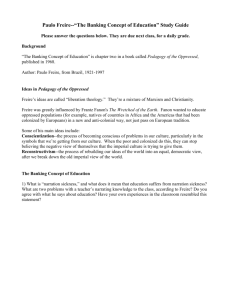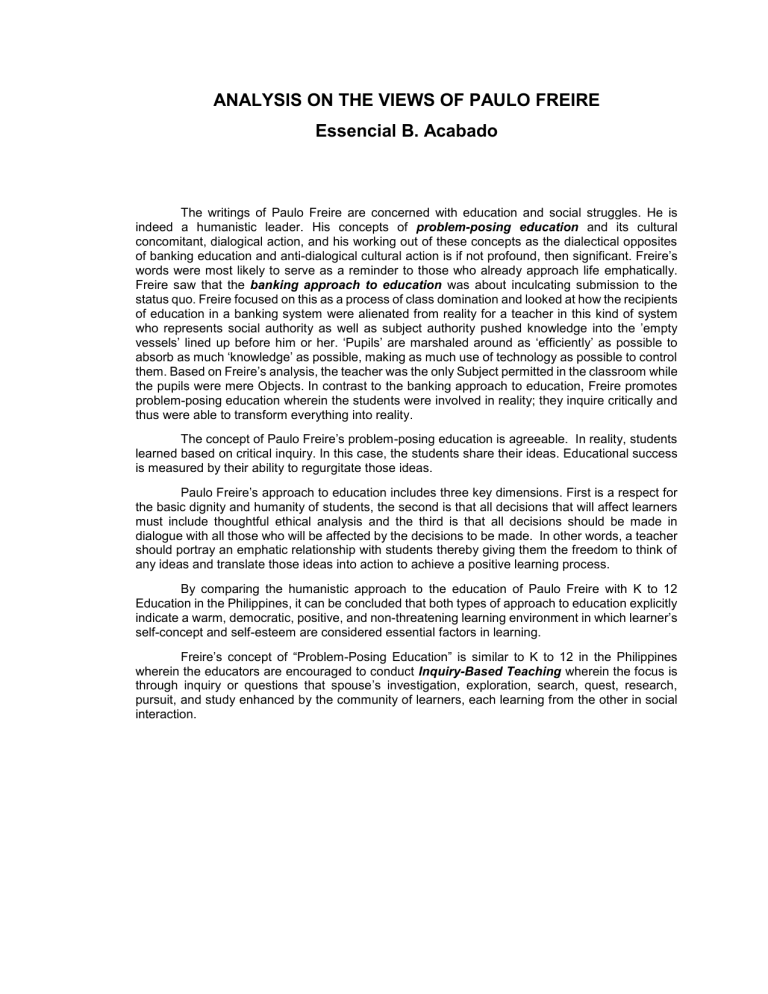
ANALYSIS ON THE VIEWS OF PAULO FREIRE Essencial B. Acabado The writings of Paulo Freire are concerned with education and social struggles. He is indeed a humanistic leader. His concepts of problem-posing education and its cultural concomitant, dialogical action, and his working out of these concepts as the dialectical opposites of banking education and anti-dialogical cultural action is if not profound, then significant. Freire’s words were most likely to serve as a reminder to those who already approach life emphatically. Freire saw that the banking approach to education was about inculcating submission to the status quo. Freire focused on this as a process of class domination and looked at how the recipients of education in a banking system were alienated from reality for a teacher in this kind of system who represents social authority as well as subject authority pushed knowledge into the ’empty vessels’ lined up before him or her. ‘Pupils’ are marshaled around as ‘efficiently’ as possible to absorb as much ‘knowledge’ as possible, making as much use of technology as possible to control them. Based on Freire’s analysis, the teacher was the only Subject permitted in the classroom while the pupils were mere Objects. In contrast to the banking approach to education, Freire promotes problem-posing education wherein the students were involved in reality; they inquire critically and thus were able to transform everything into reality. The concept of Paulo Freire’s problem-posing education is agreeable. In reality, students learned based on critical inquiry. In this case, the students share their ideas. Educational success is measured by their ability to regurgitate those ideas. Paulo Freire’s approach to education includes three key dimensions. First is a respect for the basic dignity and humanity of students, the second is that all decisions that will affect learners must include thoughtful ethical analysis and the third is that all decisions should be made in dialogue with all those who will be affected by the decisions to be made. In other words, a teacher should portray an emphatic relationship with students thereby giving them the freedom to think of any ideas and translate those ideas into action to achieve a positive learning process. By comparing the humanistic approach to the education of Paulo Freire with K to 12 Education in the Philippines, it can be concluded that both types of approach to education explicitly indicate a warm, democratic, positive, and non-threatening learning environment in which learner’s self-concept and self-esteem are considered essential factors in learning. Freire’s concept of “Problem-Posing Education” is similar to K to 12 in the Philippines wherein the educators are encouraged to conduct Inquiry-Based Teaching wherein the focus is through inquiry or questions that spouse’s investigation, exploration, search, quest, research, pursuit, and study enhanced by the community of learners, each learning from the other in social interaction.
